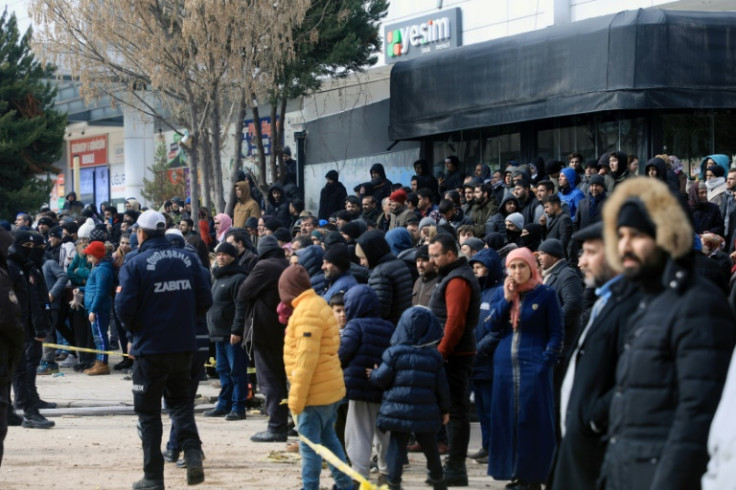UN Aid Deliveries To Syria From Turkey Could Resume Thursday

The delivery of U.N. humanitarian aid via Turkey to millions of people in northwest Syria could resume on Thursday after the long-running operation was halted by a devastating earthquake in the region, U.N. officials said.
For several years the United Nations has described access to the opposition-controlled area of Syria through one border crossing from Turkey as a "lifeline" for some 4 million people who it says rely on humanitarian assistance.
"We are hoping that tomorrow we will be able to deliver something across the border," U.N. regional humanitarian coordinator for the Syria crisis, Muhannad Hadi, told reporters on Wednesday. The reported death toll from Monday's quake has exceeded 12,000 people in Turkey and Syria.
Hadi and the acting top U.N. official in Syria, El-Mostafa Benlamlih, said preparations were also under way for aid convoys to cross the frontlines within war-torn Syria to reach the northwest - the only route Syrian President Bashar al-Assad's government says should be used to deliver assistance.
"The idea is to reach people in the fastest, cheapest, best way we can. Cross-line, as of today, does not replace cross-border. We're hoping that everybody puts the interests of the people first, we keep the politics aside," said Hadi.
U.N. aid from Turkey served 2.7 million people in northwest Syria a month last year compared with 43,500 people a month who received aid from routes within Syria since August 2021.
SOVEREIGNTY
The United Nations is able to deliver aid into Syria from Turkey because it has a mandate from the U.N. Security Council, but the Syria government views the operation as a violation of its sovereignty, independence and territorial integrity.
"Without the control of the government, without permission of the government, without approval from the government - this is violation. Very simple," Syria's U.N. Ambassador Bassam Sabbagh told reporters on Tuesday. "Cross-line is available."
Hadi and Benlamlih both appealed to all the parties in the Syrian conflict to put the people first and facilitate cross-line access. Benlamlih noted that they government was being helpful.
The U.N. Security Council first authorized a cross-border aid operation into Syria in 2014 at four points in Turkey, Iraq and Jordan. By 2020 it reduced that access to the single crossing used now due to opposition from Russia and China, which backed Assad's argument for aid deliveries from within Syria.
Opponents of Assad fear that food and other aid delivered from within Syria could fall under government control.
A crackdown by Assad's on pro-democracy protesters in 2011 led to civil war, with Moscow backing Assad and Washington supporting the opposition. Millions of people have fled Syria and millions are internally displaced.
© Copyright Thomson Reuters 2025. All rights reserved.





















